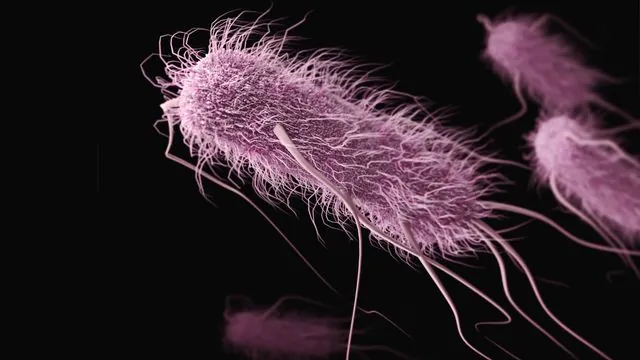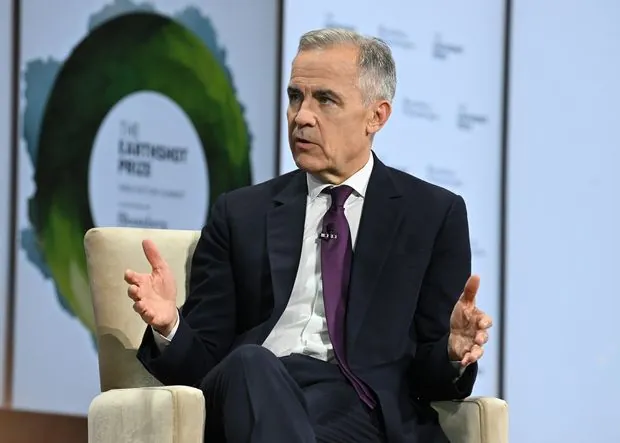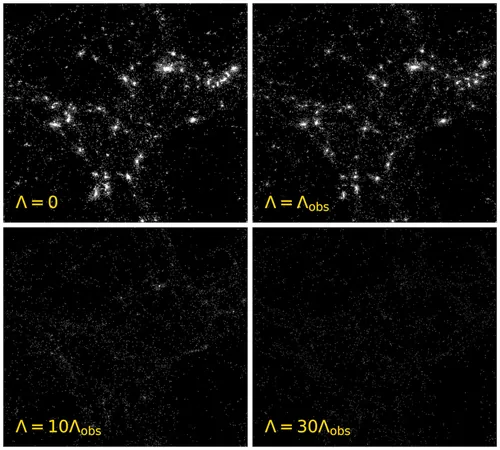
Shocking Discovery: How Certain E. coli Strains Fuel Colon Cancer Risk!
2024-11-07
Author: Noah
The Link Between E. coli and Colon Cancer
Colon cancer, sadly, stands as the third most common and one of the deadliest forms of cancer worldwide, with alarming reports indicating a rise in cases, particularly among young adults. Recent scientific findings suggest a troubling link between gut bacteria and the development of this disease, revealing that specific strains of E. coli could be behind an increase in colon cancer cases through mysterious mechanisms that are only just beginning to be unraveled.
The Role of pks+ E. coli
Among the culprits is the infamous pks+ E. coli, notorious for producing a potent genotoxin known as colibactin. This toxic substance has the capability of binding to and damaging human DNA, leading to genetic mutations that significantly heighten the likelihood of cancer. Strikingly, these dangerous bacteria are notably abundant in patients diagnosed with colon cancer.
Groundbreaking Research Findings
A groundbreaking study by researchers from VIB-UGent and VIB-VUB, led by Prof. Lars Vereecke and Prof. Han Remaut, has shed light on how pks+ E. coli manages to invade and incite damage to the intestinal wall. The team discovered that these bacteria can oscillate between a motile state and one where they firmly attach themselves to the gut lining—specifically, the intestinal epithelium—thanks to specialized structures called pili. These long, thin protein fibers sport adhesins, allowing bacteria to cling onto cell receptors lining the intestines.
Implications for Cancer Treatment
Maude Jans, the study's lead author, emphasized, 'Our findings reveal that this pivotal attachment process significantly amplifies both the number and aggressiveness of colon tumors.' For researchers, this attachment mechanism has surfaced as a critical factor in the onset of colon cancer. They found that disrupting this bacterial attachment reduced tumor development significantly, opening potential avenues for innovative treatments.
Key Adhesins Identified
Through their meticulous experiments, the team uncovered the specific adhesins responsible for this dangerous binding: FimH and FmlH. They hypothesized that these adhesins enable bacteria to deliver colibactin close to epithelial cells, causing DNA damage that can ultimately lead to cancer. Remarkably, when these adhesins were removed, the bacteria lost their ability to inflict DNA damage, underscoring the pivotal role of these proteins.
Potential Therapeutic Strategies
Promisingly, the researchers tested a therapeutic strategy aimed at preventing the attachment of these harmful bacteria using molecules designed to inhibit the binding of the studied adhesins. The results were astonishing; they reported a significant reduction in DNA damage and tumor progression in preclinical models. This therapeutic approach holds great promise as it effectively targets harmful E. coli strains while leaving beneficial gut microbes unharmed, unlike conventional antibiotics.
Influence of Diet and Lifestyle
Additionally, researchers pointed out that a Western diet and lifestyle could exacerbate the vulnerability of our intestinal walls to such harmful bacteria, including pks+ E. coli.
Probiotic Considerations
Intriguingly, these findings also bring to light a complex discussion surrounding certain approved probiotic strains of E. coli, which carry pks genes yet do not seem to raise cancer risks in lab tests. These probiotic strains are equipped with a variant of the FimH adhesin, rendering them less effective at binding and delivering colibactin. However, the study warns that even a few mutations could drastically enhance the binding efficiency of these strains, potentially unmasking their harmful capabilities.
Conclusion and Future Research
Ultimately, this compelling research raises critical questions about the safety of certain probiotic strains previously considered harmless. As these discoveries come to light, it underscores the necessity for ongoing scrutiny in the evolving landscape of gut microbiota research and its implications for cancer prevention.
Stay Tuned!
Stay tuned for more updates on this riveting topic that could change our understanding of colon cancer and gut health!









 Brasil (PT)
Brasil (PT)
 Canada (EN)
Canada (EN)
 Chile (ES)
Chile (ES)
 España (ES)
España (ES)
 France (FR)
France (FR)
 Hong Kong (EN)
Hong Kong (EN)
 Italia (IT)
Italia (IT)
 日本 (JA)
日本 (JA)
 Magyarország (HU)
Magyarország (HU)
 Norge (NO)
Norge (NO)
 Polska (PL)
Polska (PL)
 Schweiz (DE)
Schweiz (DE)
 Singapore (EN)
Singapore (EN)
 Sverige (SV)
Sverige (SV)
 Suomi (FI)
Suomi (FI)
 Türkiye (TR)
Türkiye (TR)